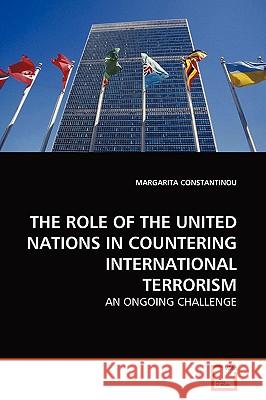The Role of the United Nations in Countering International Terrorism » książka
The Role of the United Nations in Countering International Terrorism
ISBN-13: 9783639156829 / Angielski / Miękka / 2009 / 72 str.
This book examines the role of the most important institutions of the UN the Security Council and the General Assembly, their capacity to combat terrorism as well as the challenges that they face.It examines the measures taken before 9/11 to combat terrorism where it studies the importance of an agreed definition, the criteria that should facilitate the procedure of adopting a common definition and the progress that has been made until present.It deals with the Counter Terrorism Committee which was established by Resolution 1373 and has the mandate to assist states in implementing the adopted antiterrorism measures. It looks at its challenges and capabilities within the UN mandate.It critically examines US foreign policy towards terrorism and its effect on the counterterrorism UN strategy. The book provides an academic analysis for the role of the UN to prevent and react to terrorism within its present framework and discuss the measures to be taken. Addressing terrorism is an ongoing challenge within an unsure future.It should shed some light on this issue of International Relations and should be useful for students or anyone else interested in the field.
This book examines the role of the most important institutions of the UN the Security Council and the General Assembly, their capacity to combat terrorism as well as the challenges that they face.It examines the measures taken before 9/11 to combat terrorism where it studies the importance of an agreed definition,the criteria that should facilitate the procedure of adopting a common definition and the progress that has been made until present.It deals with the Counter Terrorism Committee which was established by Resolution 1373 and has the mandate to assist states in implementing the adopted antiterrorism measures. It looks at its challenges and capabilities within the UN mandate.It critically examines US foreign policy towards terrorism and its effect on the counterterrorism UN strategy. The book provides an academic analysis for the role of the UN to prevent and react to terrorism within its present framework and discuss the measures to be taken. Addressing terrorism is an ongoing challenge within an unsure future.It should shed some light on this issue of International Relations and should be useful for students or anyone else interested in the field.











